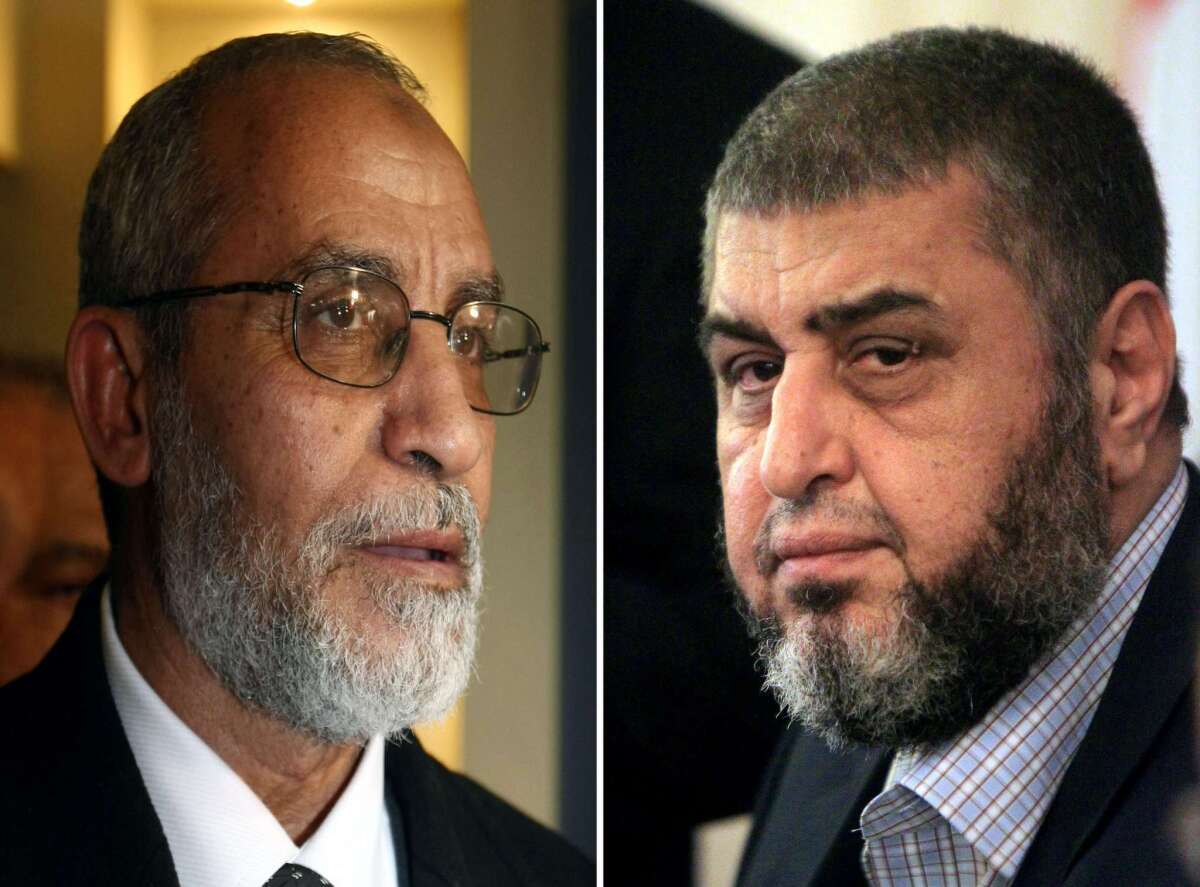Coup in Egypt: Arrest of Muslim Brotherhood leader ordered

- Share via
CAIRO – Egyptian prosecutors have ordered the arrest of the leader of the Muslim Brotherhood, the Islamist organization that controlled the government until Wednesday’s military coup overthrew President Mohamed Morsi.
The state news agency reported that warrants were issued for the Brotherhood’s supreme guide Mohamed Badie and his deputy Khairat Shater, the organization’s chief strategist and financier. Both helped orchestrate the political campaign last year that brought fellow Brotherhood member Morsi to power.
Badie and Shater are accused of inciting violence that led to deadly clashes between anti-government demonstrators and Morsi supporters. Morsi was reported to be in custody, and it appeared authorities were tightening the circle on Brotherhood members.
News of the warrants came shortly after Egypt swore in an interim leader amid fresh uncertainty over the formation of a coalition government to ease deep political divisions and prevent economic collapse.
Judge Adly Mahmoud Mansour, head of the Supreme Constitutional Court, took the oath of the presidency in a court chamber along the Nile. He replaced Mohamed Morsi, the nation’s first Islamist president, who was forced from office after refusing a military order to compromise with the opposition to end months of unrest.
The inauguration of a new leader was the latest political maneuver in a tumultuous 24 hours that were also marked by clashes between pro and anti-Morsi supporters that left 10 dead across the country.
After his swearing in, Mansour said the youth-inspired protests that began on Sunday and ended with Morsi’s overthrow “corrected the path of the glorious revolution that took place on Jan. 25, 2011.”
He added the Egyptian people “are the source of all powers” and that the greatest thing that happened on June 30 is that it “united the people without discrimination or differentiation.”
Little is known about Mansour, 67, an administrator and judge who is expected to be a transitional figure in the country’s tortuous path toward democracy that began with the 2011 uprising that overthrew longtime autocrat Hosni Mubarak. Mansour, sworn in in the same chamber where Morsi was inaugurated in last year, heads the court that often battled the Brotherhood’s attempts to increase its hold on the government.
Morsi was reportedly under house arrest. But he and the Brotherhood remained defiant, insisting they were Egypt’s legitimate authority. The coup “drives Egypt backward,” Morsi said on his Facebook page.
Gen. Abdel Fattah Sisi, commander of the armed forces, sought to calm the country Wednesday night, saying that religious and civilian leaders “have agreed on a road map for the future that includes initial steps to achieve the building of a strong Egyptian society that is cohesive and does not exclude anyone, and ends the state of tension and division.”
But the military has not announced a time frame for holding new elections or rewriting the constitution. Mansour said the nation will move ahead.
“We are looking forward to parliamentary and presidential elections that represent the true will of the people,” he said. “This is the only safe way into a brighter tomorrow, more free, more democratic, greater in justice, more conscious, and more elevated in behavior.”
ALSO:
Coup in Egypt: Judge sworn in as interim leader
Russian opposition mayor detained in bribe scandal
U.N. says it is unable to provide urgently needed aid near Damascus
jeffrey.fleishman@latimes.com
More to Read
Sign up for Essential California
The most important California stories and recommendations in your inbox every morning.
You may occasionally receive promotional content from the Los Angeles Times.










